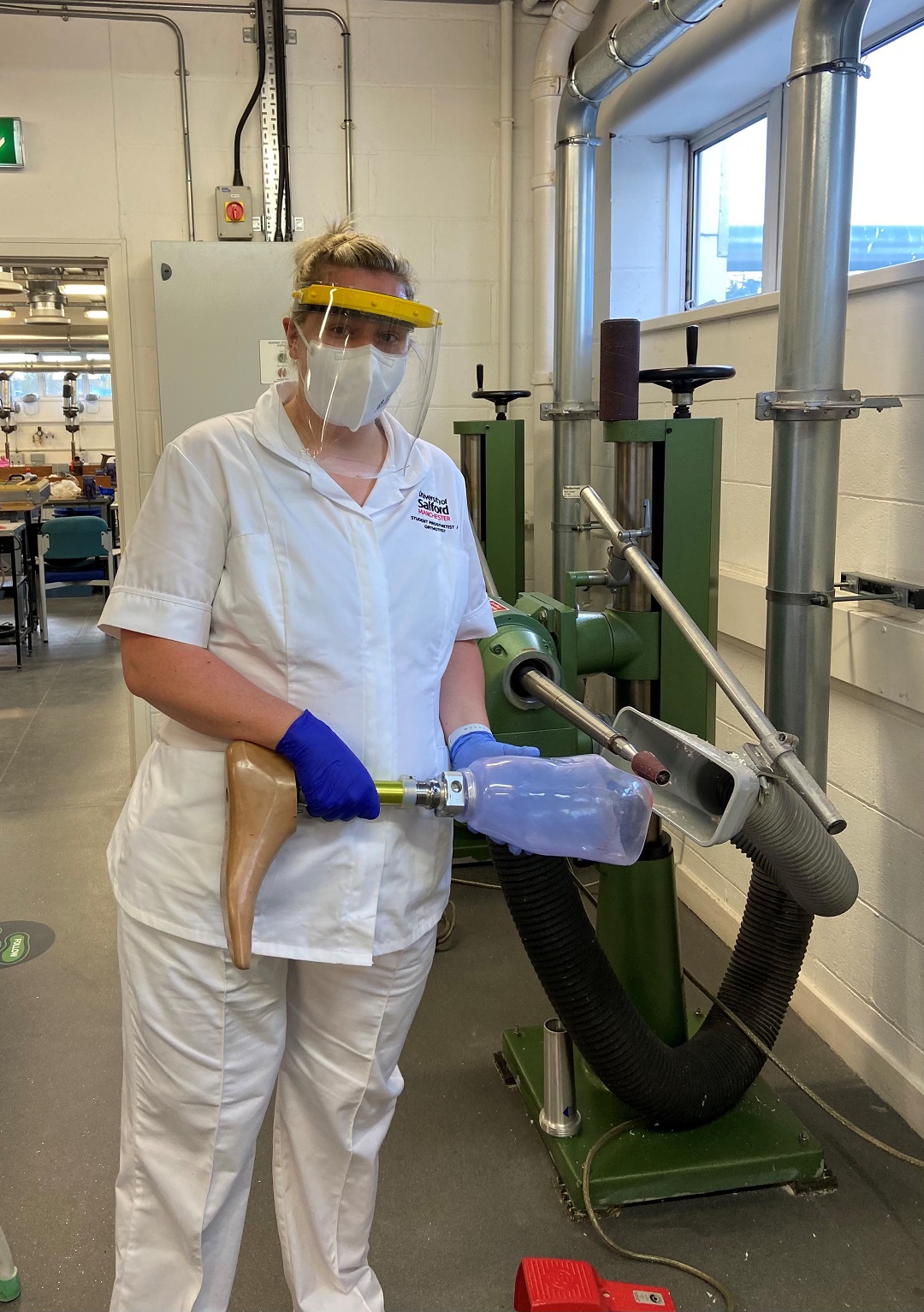Studying prosthetics as a student with a disability
Four years after losing her leg in a freak rugby accident, Gracie Matthews is studying to help others who’ve experienced life-altering disabilities.

Gracie joined the University of Salford in 2019, enrolling onto the prosthetics and orthotics undergraduate course.
Having previously studied one year of a nursing degree, helping others has always been in Gracie’s nature. Before the accident in 2016, Gracie worked in an office for years, but losing her leg motivated her to retrain and pursue a career in prosthetics.
‘I enjoyed learning about my prosthetic leg going to appointments, so I thought, why not?’ she says.
Three years after her accident, Gracie, now in her second year of studies, moved to Greater Manchester to get ready for her degree.
She says: ‘Being a mature student, I decided to move to Manchester six months before the start of my course. I got a job, joined the Manchester LBGTQ choir and made friends that way. It really helped me to settle in.’
But she found going back into education after 10 years challenging at first, particularly when it came to clinic days, which can be physically demanding.
‘It was a hard transition back into education and I did struggle getting into it. But I do feel more organised this year.
‘Although, clinic days still do tire me out. The coronavirus pandemic has made things more difficult; we are doing more condensed practical days, so most of my days I’m sat around studying and then you go and do a 9am until 6pm on your feet. I think most people with two legs would feel knackered after that – so I don’t feel so bad about being tired.’
Gracie’s goal was always to be a clinician and work with patients going through life-altering amputations like herself. She’s enjoyed making limb sockets and learning how to align them, as part of her prosthetics module.
‘It’s quite nice putting the limb on a patient, making those adjustments and actually seeing how much better they walk.’
Gracie has also learned more about her own injury through the degree. In a class, her lecturer discussed how different footwear can affect the way you walk.
It occurred to Gracie that, as an amputee, she had never been recommended which shoes to wear – but that the right pair can make a real difference.
‘That really got my brain going, and I think researching that area would be interesting. Research is something I would never have considered prior to this degree.’
But studying and having a disability is not always straightforward, as Gracie recalls.
‘There are bad days, like when your leg’s rubbing, or it’s around the anniversary of the accident. But I just think, well, this is my life now. I’m going to make the best of it, otherwise I’m going to be miserable.’
While in hospital, Gracie had to take her recovery day by day. She learned the importance of having a positive mindset, and while adapting to life with a prosthetic limb, Gracie set goals to stay motivated.
She’s continued this approach in life and has found it beneficial – particularly when facing further health problems.
She says: ‘I’m having issues with my leg now which requires surgery, so my mobility is reduced. Although I’m still exercising, I’m not so focused on physical goals but more working on my degree. I like to have goals to work towards and that keeps you in the mindset of doing well and keeping positive.’
